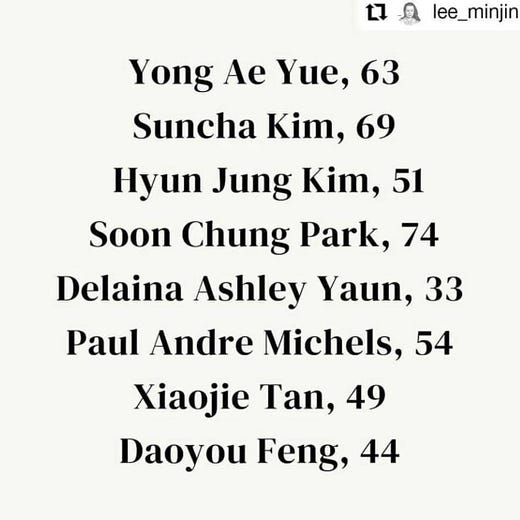State Media's Masterful Memes on the Alaska Summit
Chinese state media does a stellar job spinning the debate
The following piece is by Tony Louthan, a grad student at Georgetown’s SFS, and edited by yours truly.
If we take Xi Jinping’s 2013 remarks that “the internet is a key battleground for public opinion” at face value, then China’s state media earned their stripes in the most recent offensive. In light of the frigid reception of the Alaskan summit between representatives of the United States and China, Chinese state-run social media accounts directed the charge against what China’s State Councilor Wang Yi condemned as America’s “hegemonic practice of willfully interfering in China’s internal affairs.”
State-media accounts, specifically The People’s Daily Weibo account, received a remarkable increase in traffic while its posts garnered millions of likes and comments. Accompanied by memes, one-liners, and videos playing triumphant background music, The People’s Daily shed its perception as the CCP’s button-upped and turgid official news outlet by steeping its message in the patterns and norms of internet use more familiar to China’s younger social-media-savvy generations.
With nearly 2 million likes, the People’s Daily’s most popular post featured a side-by-side image of a diplomatic meeting 120 years ago with a photo of the Alaskan summit, contrasting the shame of unequal treaties imposed on China in the 19th and early 20th centuries with the equal footing on which China and the US now stand. The 1901 image depicts the signing of the Boxer Protocols of 1901 in which the Eight-Nation Alliance of the world’s dominant imperial powers imposed on China after anti-imperialist violence climaxed during the Boxer Rebellion. Among other deprivations, the treaty forced the Qing government to pay a massive indemnity. Quick to harp on the continuities and changes over the past 120 years, the most popular comment, which gained more than 160,000 likes, said “120 years later, the world is still the same, but China is no longer that China [of the Qing dynasty].”
Toward the end of the opening remarks for the summit, things got particularly tense as the two sides went off-script to trade barbs. In lines since made famous by Chinese social media, China’s top diplomat, Yang Jiechi, defiantly accused the United States of speaking to “China in a condescending way” and that the United States has “no qualifications to speak to China from a position of strength.” He followed up by stating that the “Chinese people will not accept this argument.” These bold remarks earned the praise of the Chinese internet, and the People’s Daily quickly posted them in the form of a meme which soon gained 1.5 million likes.
Translation of Yang Jiechi’s remarks in this post: Chinese people won’t accept American [arguments], The United States does not have the qualifications to condescendingly talk to China.
Riffing on these remarks, the top comment for The People’s Daily post reads:
The United States is a sinful, barbaric, and evil country that made its fortune by slaughtering indigenous people, enslaving black people, and colonizing, killing and looting all over the world. It is an anti-intellectual and inhumane society where thousands of ordinary people died from the coronavirus epidemic. Whether on the level of civilization or on the level of national strength, what qualifications does it have to criticize China, the only society and greatest civilization that has continued to develop and evolve for thousands of years?
Not to miss out on the political theatrics and potential marketing coup of the summit, several baijiu companies quickly seized the opportunity, borrowing the poster from People’s Daily to put out special editions of their wares.
Though the opening remarks certainly reflected the deep-seated animosity in the bilateral relationship, the opening statements were more likely intended for domestic audiences than as matters of substantive discussion.
It might be easy to dismiss the diplomats’ comments as political theater, but it is nonetheless crucial to recognize their extremely positive reception on the Chinese internet.
In line with Xi’s 2016 speech underlining the guiding role of state media in setting the tone for political discourse, The People’s Daily’s Weibo account no doubt succeeded in this regard. Not only did its posts receive more attention than from any other outlets on Weibo, it also demonstrated the success of state-run media’s attempts to adapt to a new media environment. Now all that remains is for them to figure out how “to tell China’s story well” overseas, a much taller order than memeing for the domestic audience.
A Tale of Two Interpreters
Generating significant but slightly less attention on the Chinese internet was the US Chinese interpreter’s dyed purple hair. Pulling screenshots from twitter feeds spliced with comments from Weibo users, Weitianxia, a popular Weibo account with over 29 million followers, could hardly resist the opportunity to cast shade on the hairdo. An excerpt from the post reads, “the choice to bring a purple-haired interpreter shows the US is unable to understand the importance of the occasion.” Other commenters stated that the interpreter’s informality demonstrated the US’ lack of sincerity and professionalism. There was pushback in the comment section about decisions to focus on the interpreter’s hair color with one commenter stating “What a load of crap! What does the meeting have to do with the color of the translator’s hair?”
Both Chinese and western media were critical of the American’s performance in contrast to that of her Chinese counterpart Zhang Jing, who earned the internet’s praise. The American translator was criticized for her lack of nuance in her translation, making the American statements come across as more aggressive than intended by Blinken and Sullivan. On the flip side, Zhang Jing’s English translation of Yang and Wang’s statements earned her Weibo’s praise. In the single moment of levity during the meeting, even Secretary of State Blinken praised Zhang’s translation skills suggesting that “We’re going to give [Zhang] a raise.”
Tweets of the Week
Read the whole thread.













